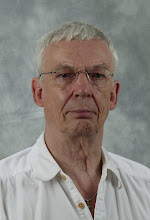Limits suck! We still want to believe that progress is an eternal upward sweep of human endeavor that is stretching towards a celestial utopia made possible by science and technology. The idea of technology being limited remains a non-issue. But now the prospect of resource depletion has began to impose itself on our utopian vision.
This is why peak oil and global warming are anathema to us. They violate our theology and raise the specter that there might be limits to how far we can take our technology. Our tragic flaw is our inability to frame an issue outside of our theology of science because our all of our thinking proceeds from the unproven premise of eternal growth. This is what Damien Perrotin calls the “culture of progress.” He goes on to say:
The problem of Peak Oil is that the narrative which underlies it runs contrary to everything Enlightenment and the ideology of progress stand for. Where progress is about conquest and the mastery of nature, peak oil tells us of the absolute, unmovable limits this very nature assigns to our development and prosperity.
There is much talk of a need for a paradigm change. Implicit in much of this talk is the unspoken assumption that simply because we understand there is such a thing as paradigm changes it is possible to execute one simply because we understand it. What this assumption fails to appreciate is that there is a world of difference between saying and doing. Just because we can say it doesn’t mean we can do it. For an example of this, let us take a look at how long it took the Enlightenment to be diffused into our everyday life.
One of the earliest expressions of Enlightenment thinking was the French Encyclopedie, edited by Denis Diderot and first published in 1752. Many traditional publications included an illustration showing “The Tree of Knowledge.” Up until Diderot, these illustrations had placed Theology at the base of the tree. Diderot, in his Encyclopedie, showed the base of the tree as Philosophy. Theology was relegated to a twig on the branch of “Fancy and Fairy Tales.”
Fast forward to Westchester County, New York in 1835, where Robert Mathews, who called himself the Prophet Mathias and who claimed to be a messenger from Jesus Christ, was indicted on charges of attempted murder, child abuse and being a false prophet of God. Upon reviewing the indictment, the Westchester County district attorney dropped the false prophet charge because he believed there was no way to prove that Mathews wasn’t a false prophet. In other words, seventy-three years into the Enlightenment educated people still believed in the possibility of an individual being a prophet of God.
Fast forward, again, to 1895 and in Michael Lesy’s Wisconsin Death Trip there are numerous accounts of individuals being institutionalized for “religious insanity.” It looks as if it took 140 years for Enlightenment ideas to percolate down to everyday life.
With time, the paradigm will change, as it always does. But we cannot will it; we cannot throw a switch and make it happen. Nor do we have any knowledge what it will look like. All we can be sure of is that it is now happening and that the upward sweep of progress is grinding to a halt.
Friday, April 30, 2010
Subscribe to:
Post Comments (Atom)


2 comments:
In both Wisconsin Death Trip and Wisconsin Death Trip 2 Lesy showed how solitude and long winters can make people crazy. Even today, once you get outside the Madison-Green Bay-Milwaukee Triangle there's plenty of crazy to go around.
I just ordered the DVD and am looking forward to seeing it. If you want an excellent novel that paints a vivid portrait of the effects of isolation read O.E. Rolvag's "Giants in the Earth."
Post a Comment